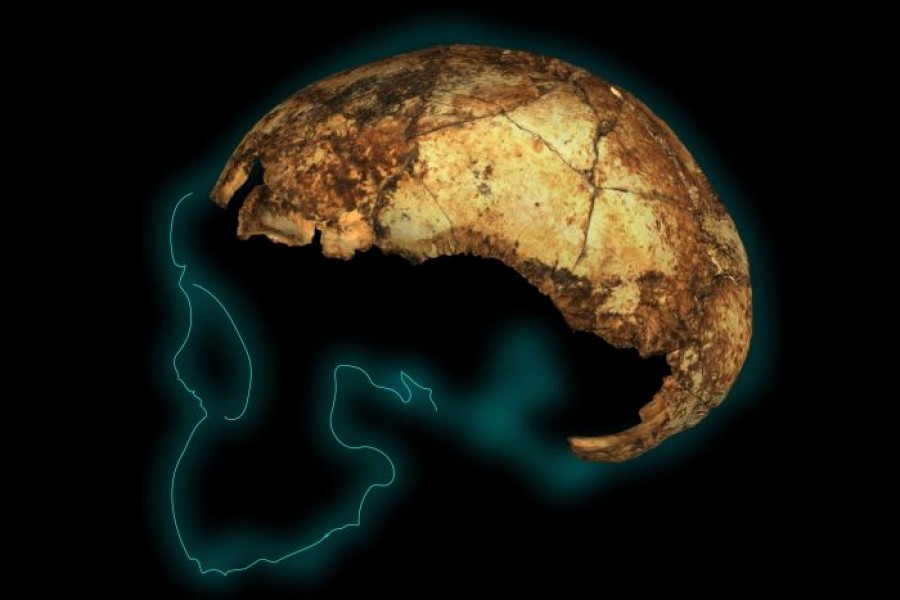An international team of researchers led by Australia's La Trobe University have unearthed the earliest known skull of Homo erectus -- an early ancestor of modern humans similar in their anatomy and behavioral aspects.
The 2-million-year-old fossilized skull was pieced together over a five-year period from 150 individual fragments found in the Drimolen cave system north of Johannesburg in modern day South Africa, according to the study which was published on Friday, reports Xinhua.
Lead researcher Professor Andy Herries, Head of La Trobe's Department of Archaeology and History, said that the age of the skull shows that Homo erectus existed 100,000 to 200,000 years earlier than previously thought.
"The Homo erectus skull we found, likely aged between two and three years old when it died, shows its brain was only slightly smaller than other examples of adult Homo erectus," Herries said.
"It samples a part of human evolutionary history when our ancestors were walking fully upright, making stone tools, starting to emigrate out of Africa, but before they had developed large brains," he added.
Herries said that the skull is further evidence that our ancestors evolved in Africa, adding that Homo erectus was not the only early hominid species existing at the time.
"We can now say Homo erectus shared the landscape with two other types of humans in South Africa, Paranthropus and Australopithecus," he said.
The question of why our bloodline survived while that of similar species died off will be a focus for further research by the team, looking into the role of changing habitats, resources, and the unique biological adaptations of our ancient ancestors.
"However, as the last surviving human species, we should not think we are immune to the same fate as Australopithecus, who likely became extinct as a result of the changing climate 2 million years ago," Herries said.
Co-director on the project, University of Johannesburg PhD student Stephanie Baker, said the discovery of the earliest Homo erectus marks an incredible milestone for South African fossil heritage.
"Not only does the research illustrate the importance of South Africa in the human story, but this project is the first major breakthrough in hominin research with a female, South African director," Baker said.


